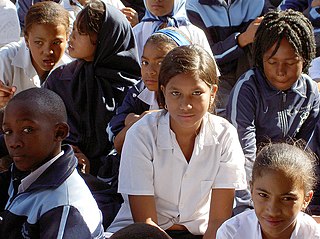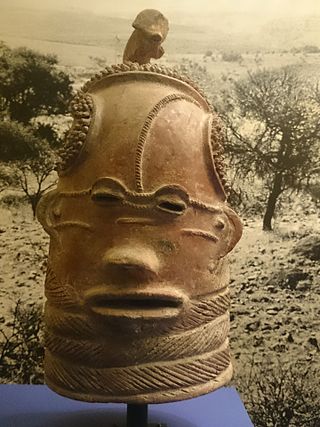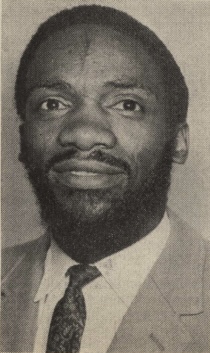
The University of Fort Hare is a public university in Alice, Eastern Cape, South Africa.

A Bantustan was a territory that the National Party administration of South Africa set aside for black inhabitants of South Africa and South West Africa, as a part of its policy of apartheid.

Ciskei, officially the Republic of Ciskei, was a Bantustan for the Xhosa people, located in the southeast of South Africa. It covered an area of 7,700 square kilometres (3,000 sq mi), almost entirely surrounded by what was then the Cape Province, and possessed a small coastline along the shore of the Indian Ocean.

The Liberal Party of South Africa was a South African political party from 1953 to 1968.
The Department of Bantu Education was an organisation created by the National Party government of South Africa in 1953. The Bantu Education Act, 1953 provided the legislative framework for this department.

The University of Cape Town (UCT) is a public research university in Cape Town, South Africa. Established in 1829 as the South African College, it was granted full university status in 1918, making it the oldest university in South Africa and the oldest university in Sub-Saharan Africa in continuous operation.
The Bantu Education Act 1953 was a South African segregation law that legislated for several aspects of the apartheid system. Its major provision enforced racially-separated educational facilities; Even universities were made "tribal", and all but three missionary schools chose to close down when the government would no longer help to support their schools. Very few authorities continued using their own finances to support education for native Africans. In 1959, that type of education was extended to "non-white" universities and colleges with the Extension of University Education Act, 1959, and the University College of Fort Hare was taken over by the government and degraded to being part of the Bantu education system. It is often argued that the policy of Bantu (African) education was aimed to direct black or non-white youth to the unskilled labour market although Hendrik Verwoerd, the Minister of Native Affairs, claimed that the aim was to solve South Africa's "ethnic problems" by creating complementary economic and political units for different ethnic groups.

Apartheid was a system of institutionalised racial segregation that existed in South Africa and South West Africa from 1948 to the early 1990s. Apartheid was characterised by an authoritarian political culture based on baasskap, which ensured that South Africa was dominated politically, socially, and economically by the nation's minority white population. In this minoritarian system, there was social stratification, where white citizens had the highest status, followed by Indians and Coloureds, then Black Africans. The economic legacy and social effects of apartheid continue to the present day, particularly inequality.

Educational Systems in S.A

Black South Africans also known as 'South African Bantu-speaking peoples represent the majority of people in South Africa and who have lived in what is now South Africa for thousands of years as an indigenous people alongside other indigenous groups like Khoisans. Occasionally grouped as Bantu, the term itself is derived from the English word "people", common to many of the Bantu languages. The Oxford Dictionary of South African English describes "Bantu", when used in a contemporary usage or racial context as "obsolescent and offensive", because of its strong association with the "white minority rule" with their Apartheid system. However, Bantu is used without pejorative connotations in other parts of Africa and is still used in South Africa as the group term for the language family.
The system of racial segregation and oppression in South Africa known as apartheid was implemented and enforced by many acts and other laws. This legislation served to institutionalize racial discrimination and the dominance by white people over people of other races. While the bulk of this legislation was enacted after the election of the National Party government in 1948, it was preceded by discriminatory legislation enacted under earlier British and Afrikaner governments. Apartheid is distinguished from segregation in other countries by the systematic way in which it was formalized in law.
The South African Liberal Students' Association (SALSA) exists to unify liberal student organisations across South African campuses. SALSA is the ideological descendant of the South African Liberal Association (SALA) (1936–1968), the first non-racial political organisation in South Africa, gathering many of its liberal principles and goals in its founding constitution. SALSA is a student organisation which is not aligned with any political party; and which believes in, practices and promotes the principles of liberal democracy on campuses.

Internal resistance to apartheid in South Africa originated from several independent sectors of South African society and took forms ranging from social movements and passive resistance to guerrilla warfare. Mass action against the ruling National Party (NP) government, coupled with South Africa's growing international isolation and economic sanctions, were instrumental in leading to negotiations to end apartheid, which began formally in 1990 and ended with South Africa's first multiracial elections under a universal franchise in 1994.
Max Price is a former vice-chancellor and principal of the University of Cape Town (UCT) in South Africa. He succeeded Njabulo Ndebele and held this position for 10 years from 19 August 2008 until 30 June 2018.

The Extension of University Education Act, Act 45 of 1959, formed part of the apartheid system of racial segregation in South Africa. This act made it a criminal offense for a non-white student to register at a formerly open university without the written permission of the Minister of Internal Affairs. New universities were then established for various non-white groups.
Racism in South Africa can be traced back to the earliest historical accounts of interactions between African, Asian, and European peoples along the coast of Southern Africa. It has existed throughout several centuries of the history of South Africa, dating back to the Dutch colonization of Southern Africa, which started in 1652. Before universal suffrage was achieved in 1994, White South Africans, especially Afrikaners during the period of Apartheid, enjoyed various legally or socially sanctioned privileges and rights that were denied to the indigenous African peoples. Examples of systematic racism over the course of South Africa's history include forced removals, racial inequality and segregation, uneven resource distribution, and disenfranchisement. Racial controversies and politics remain major phenomena in the country.
Kabokweni is a town in Ehlanzeni District Municipality in the Mpumalanga province of South Africa. It was established formally as a town in 1967, as the first town in the Kangwane bantustan.

The Tomlinson Report was a 1954 report released by the Commission for the Socioeconomic Development of the Bantu Areas, known as the Tomlinson Commission, that was commissioned by the South African government to study the economic viability of the native reserves. These reserves were intended to serve as the homelands for the black population. The report is named for Frederick R. Tomlinson, professor of agricultural economics at the University of Pretoria. Tomlinson chaired the ten-person commission, which was established in 1950. The Tomlinson Report found that the reserves were incapable of containing South Africa's black population without significant state investment. However, Hendrik Verwoerd, Minister of Native Affairs, rejected several recommendations in the report. While both Verwoerd and the Tomlinson Commission believed in "separate development" for the reserves, Verwoerd did not want to end economic interdependence between the reserves and industries in white-controlled areas. The government would go on to pass legislation to restrict the movement of blacks who lived in the reserves to white-controlled areas.

Archibald Boyce Monwabisi Mafeje, commonly known as Archie Mafeje, was a South African anthropologist and activist. Born in what is now the Eastern Cape, he received degrees from the University of Cape Town (UCT) and the University of Cambridge. He became a professor at various universities in Europe, North America, and Africa. He spent most of his career away from apartheid South Africa after he was blocked from teaching at UCT in 1968.











